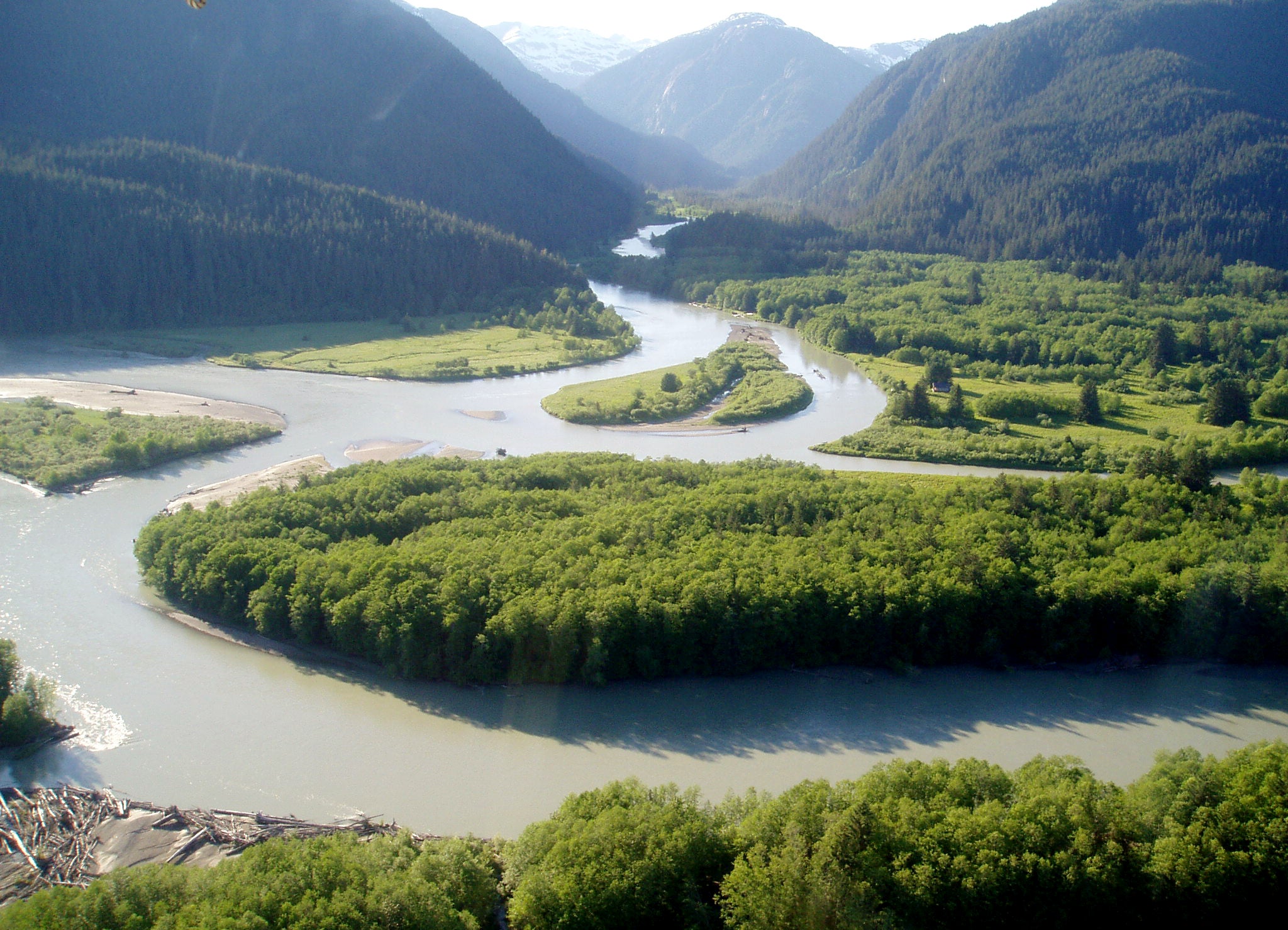Alaska Native Tribes Press B.C. for Rights Amid Reckless Gold Rush
Tlingit Tribes originating along the Unuk River want a say in risky mining proposals
Contact
An Alaska-based consortium of Tlingit, Haida, and Tsimshian Tribal governments today submitted evidence to Canadian environmental regulators that affirms their historic presence along the Unuk River, which is threatened by rapidly expanding transboundary mining. The Southeast Alaska Indigenous Transboundary Commission (SEITC) is seeking recognition from the government of British Columbia and Canada to protect the Unuk River watershed from being damaged by the Eskay Creek Mine, a large open-pit gold mine proposed just across the Alaska-Canada border by Skeena Resources.
At the time of European contact in 1741, the Unuk Watershed was recognized territory of coastal Tlingit people, including the descendants of the Tèiḵwèidi Tlingit Clan of the Sàanyàa Ḵwáan.
SEITC Assistant Executive Director Lee Wagner says the proposed mine plan conflicts with their obligation to protect traditional lands for future generations: “My family has been the river’s customary caretakers for over ten thousand years. Our crest of the rising sun, denoting ownership, is seen throughout the river. The pictographs declare we were there then, are here now, and will remain as long as this river flows.”
Eskay Creek is one of at least six proposed and operating mines dotting the Taku, Stikine, and Unuk Rivers upstream of the US-Canada border. These rivers, amongst the last wild salmon habitats remaining in the world, hold significant cultural importance for the Southeast Alaska Tribes. Today, recklessly underregulated gold mining in Northwest British Columbia threatens to disrupt these vulnerable watersheds and leach copper, selenium and other toxins downstream across the border.
“We are talking about poisoning our rivers to help mining companies turn a profit,” said SEITC Vice-President, Rob Sanderson, Jr. “We have relied on and successfully stewarded these rivers for millennia. Canada has no right to endanger our way of life for generations to come.”
If SEITC succeeds, it would be the first time in history that a US-based Tribe is granted Participating Indigenous Nation status in Canada. In 2021, the Supreme Court ruled that non-resident Indigenous people have constitutional rights in Canada if they are modern-day successors of past occupants. Section 35 of Canada’s Constitution Act mandates consultation with Indigenous peoples on projects impacting their ancestral lands.
The Inter-American Commission on Human Rights recently recognized that Canada’s persistent refusal to consult with Alaska Native Tribes on large-scale mining development along the transboundary watersheds could violate international human rights. The case, brought by Earthjustice on behalf of SEITC, will move into its briefing phase in February.
BC’s track record on mining safety raises concerns. The 2014 Mine Polley Mine disaster saw a “state of the art” tailings dam breach in under 20 years, spilling around 25 million cubic liters of mine waste into the Fraser River. Despite this, the same design is planned for Eskay Creek Mine’s tailings, which would be stored just a few miles upstream of critical salmon habitat.
“There’s just no way to predict all the potential disasters and long-term harms of the Eskay Creek Mine,” said Senior Attorney Ramin Pejan of Earthjustice. “Tribes in Southeast Alaska downstream from the mine rightly fear this could jeopardize their food security and exacerbate the global biodiversity crisis. BC regulators simply must engage in deep consultation and negotiate a consent-based agreement with these Tribes before rushing forward.”

Additional Resources
About Earthjustice
Earthjustice is the premier nonprofit environmental law organization. We wield the power of law and the strength of partnership to protect people's health, to preserve magnificent places and wildlife, to advance clean energy, and to combat climate change. We are here because the earth needs a good lawyer.